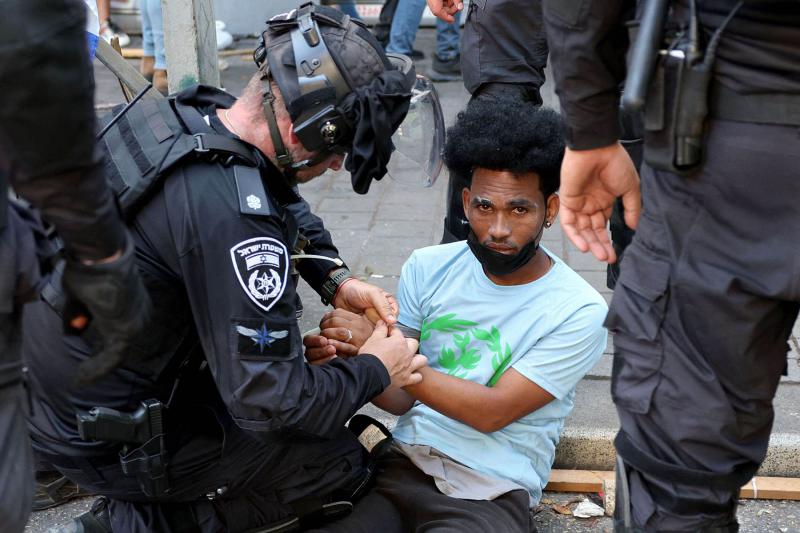(3 minutes read)
Israeli National Security Minister Itamar Ben Gvir visited southern Tel Aviv, a day after bloody protests by rival groups of Eritreans left dozens of people injured there. Eritreans, supporters, and opponents of Eritrea’s government fought with construction lumber, pieces of metal, and rocks, smashing shop windows and police cars.
Israeli police in riot gear shot tear gas, stun grenades, and live rounds while officers on horseback tried to control the protesters.
Read Also:
https://trendsnafrica.com/eritrea-re-joining-igad-to-help-regional-trade-integration/
Earlier, Israeli Prime Minister Benjamin Netanyahu said he wanted Eritrean migrants involved in a violent clash in Tel Aviv to be deported immediately and has ordered a plan to remove all of the country’s African migrants. The violence returned to the fore the issue of migrants, which has long divided Israel.
Read Also:
https://trendsnafrica.com/eritrea-re-joining-igad-to-help-regional-trade-integration/
Its resurgence comes as Israel is torn over Netanyahu’s judicial overhaul plan, and supporters cite the migrant issue as a reason why the courts should be reined in, saying they have stood in the way of pushing the migrants out. Under international law, Israel cannot forcibly send migrants back to a country where their life or liberty may be at risk.
Read Also:
https://trendsnafrica.com/eritrea-blames-us-for-rushing-tigray-peace-deal/
Netanyahu said recently he didn’t think deporting supporters of the Eritrean government would be a problem. About 25,000 African migrants live in Israel, mainly from Sudan and Eritrea, who say they fled conflict or repression. Israel recognizes very few as asylum seekers, seeing them overwhelmingly as economic migrants, and says it has no legal obligation to keep them. The clashes came as Eritrean government supporters marked the 30th anniversary of the current ruler’s rise to power, an event held near the Eritrean embassy in south Tel Aviv. Eritrea has one of the world’s worst human rights records and migrants in Israel and elsewhere say they fear death if they were to return.





